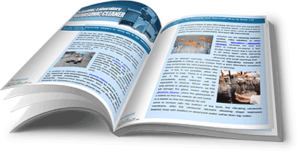Safe Vaccine Storage Check List

Proper storage protects vaccine potency
Updated versions of three vaccines have been recommended by the World Health Organization for the 2012-2013 flu season according to the Centers for Disease Control. In order to avoid vaccine deterioration it is essential that healthcare facilities take special precautions in vaccine storage and handling especially as it related to vaccine storage temperature. Inoculation centers should use vaccine storage refrigerators designed to maintain accurate cold chain storage temperatures. Residential and dorm-type units are not likely to maintain correct temperatures, which can result in loss of potency and the need to revaccinate – not to mention the cost of lost product.
Check Recommended Vaccine Storage Temperatures
Influenza vaccine manufacturers provide recommended storage temperatures for both LAIV (live attenuated influenza vaccine) administered as a nasal spray and TIV (trivalent influenza vaccine) administered as a flu shot. According to the CDC LAIV is shipped at 35°F – 46°F (2°C-8°C) and should be stored at 35°F-46°F (2°C-8°C) on receipt. LAIV can remain at that temperature until the expiration date is reached. TIV should be stored at 35°F-46°F (2°C-8°C) and should not be frozen. TIV that has been frozen should be discarded. In both cases vaccine prepared for a previous influenza season should not be administered.
Check Vaccine Storage Refrigerators
When selecting a vaccine storage refrigerator keep in mind that manual-defrost refrigerators have been deemed unacceptable because their cold wall design can freeze or damage vaccines that may be in contact with the walls. The preferred design is an auto-defrost refrigerator such as the 24 cubic foot Nor-Lake NSPR241 available from Tovatech with a digital LED microprocessor temperature controller and audio/visual temperature alarms. This unit, also available in larger capacities, allows users to control the temperature from 2⁰ t o 10⁰C. Healthcare clinics with smaller storage requirements can select the 5.2 cubic foot Nor-Lake LR061 undercounter lab refrigerator also equipped with a digital LED microprocessor temperature control and temperature alarms.
Follow manufacturer’s instructions on setting up and maintaining your vaccine storage refrigerator.
Check Vaccine Storage Procedures
Any healthcare facility responsible for administering vaccines should have procedures in place to protect the vaccine contents from degradation. Examples include:
- Assign primary and backup personnel responsible for vaccine storage and handling
- Record vaccine arrival, condition, manufacturer, lot number and expiration date
- Store vaccines with earlier expiration dates in the front of the refrigerator
- Monitor and record temperatures twice daily
- Establish procedures to protect contents in the event of a malfunction or power failure
- Do not keep food or beverages in a vaccine storage refrigerator
Flu vaccines represent a substantial investment. Situations where mishandling has caused substantial financial losses due to spoilage are a matter of record. Healthcare facilities should establish and maintain standard operating procedures to protect vaccines from spoilage and avoid the need for patients to return for a re-vaccination.
For more information on this subject we invite you to read our post on guidelines for vaccine refrigerators and freezers.
Contact the scientists at Tovatech for expert advice on selecting scientific refrigerators and freezers for storing vaccines at your facility.
